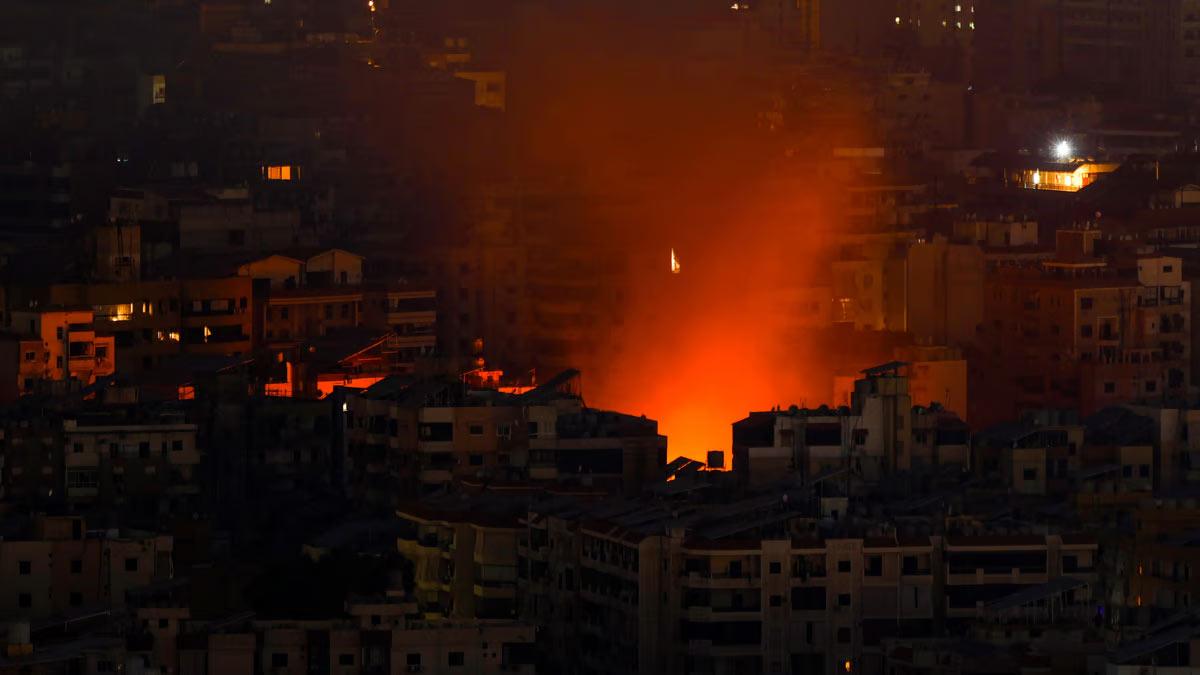The IDF announced on Saturday, 26 October, that it had carried out "precise and targeted strikes" on several military sites in Iran directly threatening Israel.
The IDF said that the launches took place in three waves accompanied by the Israeli Air Force. The launches were early on Saturday as a retaliatory measure to a ballistic missile attack on 1 October, the IDF stated.
"The IDF has achieved its objective. If the Iranian regime commits the mistake of launching a new escalation, we will respond," the IDF said, noting that IAF planes returned safely from the operation.
In a stern message, the IDF said, "Those who threaten Israel and try to raise tensions in the region will face harsh punishment. Today's actions prove our capabilities and our will to clearly defend the State of Israel and its citizens both on the offensive and defensive."
Downplaying the effect of Israeli airstrikes that hit its territory early Saturday, Iran accused the IDF of exaggerating claims about the scope of the attack.
According to the source, Iran's semi-official Tasnim news agency said that reports stating hundreds of Israeli aircraft were involved in the attack are Israel's attempt to exaggerate its actions.
In addition, the report claims that Israeli fighter jets did not enter Iranian airspace during the strikes and the attacks inflicted only a "limited damage".
"The reports that 100 Israeli military aircraft took part in the attack are also pure fantasy as Israel is trying to make its weak attack seem impressive," the agency quotes its source as saying.
The IDF said, citing intelligence, that the IAF had struck missile manufacturing plants in Iran that have produced the missiles launched at Israel in the past year.
According to the IDF, these missiles presented a "direct and immediate threat" to the people of Israel. The operation also targeted Iranian surface-to-air missile arrays and other aerial capabilities that would otherwise have restricted Israel's operational freedom in Iranian airspace.
Iran launched hundreds of missiles at Israel during two incidents in April and October. The IDF accused Iran of "funding and sponsoring terrorist activities" through different proxies across the Middle East in order to hit the country and destabilise its neighbourhood.
The IDF told BBC News that there are advanced offensive operational capabilities involved while carrying out the attacks on the Iranian strategic assets and said this was Israel's "basic right to defend its citizen" if Iranian aggression continued to continue.
According to some reports, explosions were reported in the Iranian capital Tehran, where some of those sounds came from Iran's state media air defense systems. While Syrian state media said "hostile targets" are being targeted by Syrian air defenses.
The incursion coincided with Israeli ground forces crossing into Lebanon separately. The strike came as US Secretary of State Antony Blinken returned from a Middle East tour during which he urged Israeli officials to avoid an escalation of the conflict and exclude nuclear facilities in any Iranian operation.
White House National Security Council spokesman Sean Savett confirmed the targeted strikes by Israel on Iranian military targets and referred further inquiries to the Israeli government.
A spokesman for the Tehran Oil Refinery rejected the reports that the facility was hit by Israeli forces, saying that the refinery is "operating normally," according to Iran's IRNA news agency.
Immediately after the attack, Iran's air defense issued a statement condemning the attacks, describing Israel as a "criminal, illegitimate, and fake regime" that was trying to escalate the situation in the region.
The Iranian air defences "successfully confronted" the attack on military sites in Tehran, Khuzestan, and Ilam provinces, according to the statement.
Read also| Israeli Military Conducts Strikes on Military Targets in Iran
Read also| BRICS Leaders Pledge to Establish a Democratic, Multipolar World Order, Putin


















